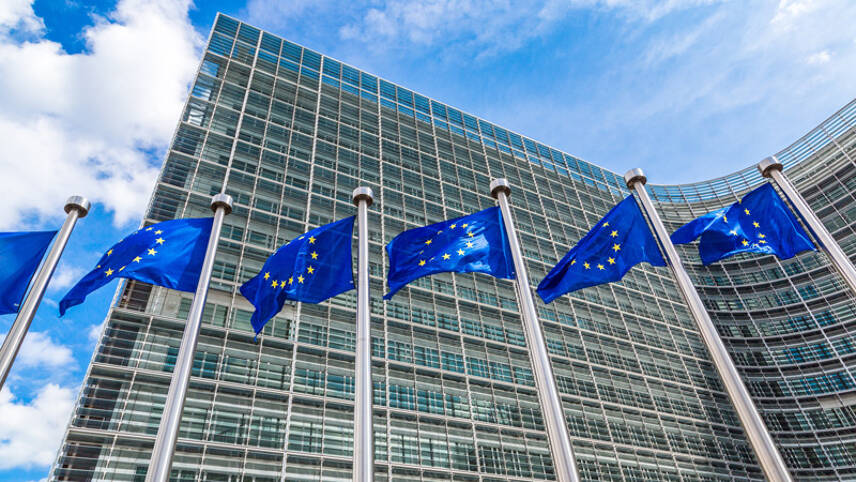Register for free and continue reading
Join our growing army of changemakers and get unlimited access to our premium content

On Thursday (1 June), a majority of MEPs voted in favour of the report defining the European Parliament’s position on the new rules, largely backing a compromise deal reached by the legal affairs committee in April.
The vote was overall welcomed by many MEPs and civil society organisations, who have long supported the proposed EU corporate sustainability due diligence directive (CSDDD) to ensure EU companies prevent, identify and mitigate adverse human rights and environmental impacts along their value chain.
The Parliament’s vote opens the way for inter-institutional negotiations – called “trilogues” – with the EU Commission and member states, which already agreed their common position in December 2022.
Uncertain vote
“I’m very pleased with the outcome of the vote today and that we got this over the line despite some last-minute manoevring,” said rapporteur Lara Wolters (S&D), who defined the vote as an “emotional rollercoaster.”
The adoption of the report, passed with 366 votes in favour and 225 against, came after intense negotiations and a last-minute opposition by several MEPs, mainly from the centre-right EPP, to key parts of the text. The opposition made the adoption of the report uncertain despite a wide consensus reached at the committee level on the draft report.
The MEPs tried to water down climate due diligence obligations, increase full harmonisation and eliminate directors’ duties from the law, which remain a main concern of businesses as well.
“Due diligence rules need to be clear, workable, uniform at the EU level,” said BusinessEurope director Markus J. Beyrer, adding that directors’ duties create “unnecessary interference with corporate governance.”
While most amendments were finally rejected by the majority of the Parliament, the group managed to scrap the directors’ responsibilities in setting up and overseeing due diligence obligations from the draft law.
Directors’ duties
According to many MEPs and supporters of the CSDDD, the adoption of this amendment was “unfortunate”.
“Change needs to come from the top down,” Richard Gardiner, EU public policy lead at the World Benchmarking Alliance, told EURACTIV. “It is unfortunate that the final vote minimises the role of the corporate board and directors in overseeing a company’s adherence to the law.”
At the same time, the Parliament voted in favour of ensuring directors of companies with more than 1,000 employees are responsible for due diligence checks, with a part of their variable remuneration linked to the company’s climate transition plans.
“The fact that we’ve got a general duty of care in this directive means that this is still a political topic on our negotiating agenda,” Wolters said, adding that “the Commission is firmly on our side” on this issue.
However, this is likely to create a clash with member states who strongly opposed any link between due diligence obligations and directors’ remuneration in their negotiating position.
Tough negotiations ahead
The upcoming trilogue negotiations will likely focus on other critical points as well, such as the inclusion of the financial sector in the CSDDD.
According to Wolters, finance will be the “main battleground”. Parliament voted to include mandatory due diligence checks for financial services and institutions, while member states agreed to leave them as optional.
MEPs and member states will also need to find a compromise on the scope of the directive and the extent of the value chain covered by the new rules.
While member states agreed on a narrow definition of ‘chain of activities’, the Parliament agreed that due diligence rules should apply not only to the supply chain, but also to the sale, distribution, transport, storage and waste management of products and services.
Compared to the position of member states, the Parliament also voted to apply the law to a larger number of companies, starting with those with over 250 employees and a turnover of more than €40 million in Europe and €150 million worldwide.
Finally, according to Wolters, civil liability and access to justice will also be “tough battles to fight” in the upcoming months, as EU lawmakers extended access to justice for victims and requirements for companies to remediate harm caused due to their activities.
“These [aspects] will be very high on the political agenda and will not be resolved within the first trilogue,” Wolters said.
Negotiations should start next week under the Swedish presidency of the EU Council and continue under the Spanish presidency. The aim is to formally adopt the law before next year’s European elections.
Silvia Ellena, EurActiv.com
This article first appeared on EurActiv.com, an edie content partner


Please login or Register to leave a comment.